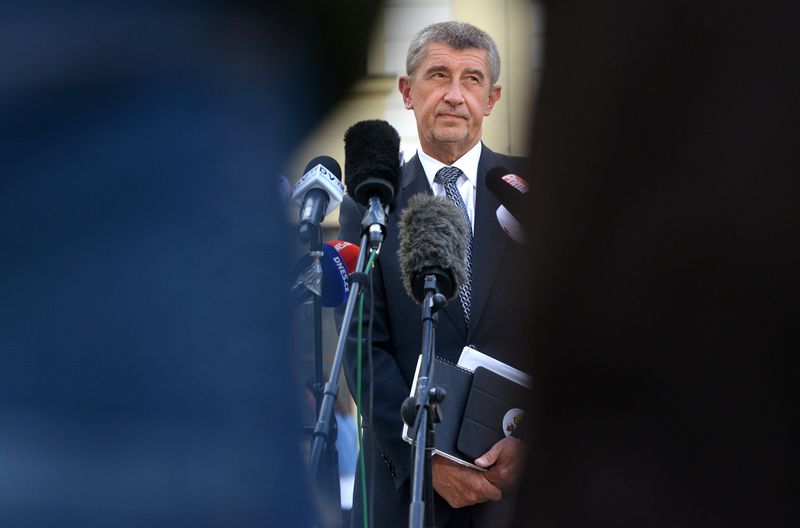Friday, October 20

A CZECH TRUMP?
Czech Republic votes with populist billionaire topping the polls

Today, the Czech Republic will go to the polls for its quadrennial legislative elections.
Led by Andrej Babis, an anti-immigrant billionaire promising to upend the political establishment, the populist ANO party is expected to win by a wide margin.
Having served as finance minister for the past four years, Babis was ousted on allegations of tax crimes. In early October, he was charged with subsidy fraud by Czech police.
While his party is for further EU integration, Babis has taken different positions over time, making his actual beliefs hard to determine.
The future of the Czech Republic lies in the coalition ANO will have to craft to form a government. Should Babis choose to pair with centrist parties, the country’s relationship with the EU will remain the same.
Contrastingly, if ANO chooses to govern with any of the far-right parties, Prague’s relationship with Brussels would cool markedly. While Babis likely prefers the former, it is unclear if any centrist parties will agree to work with him, on account of his police charges.
DEMOCRACY IN THE BALANCE
Kenyan opposition leader arbiter of peace

Today, Kenyan opposition leader Raila Odinga is expected to announce the next course of action for his supporters.
After the Kenyan Supreme Court’s annulment of the August 2017 general elections, Mr Odinga has organised regular protests, demanding the restructuring of the country’s election commission and the resignation of several electoral officials.
Following the departure of numerous key electoral officials–such as Commission head Wafula Chebukati and Commission board member Roselyn Akombe– citing personal threats of death, some are hopeful that Odinga will be appeased.
Unfortunately, this is improbable, as Odinga has since called for fresh protests on election day, which is now October 26. By withdrawing from the ballot, the opposition leader claims he will force a new 90-day electoral cycle. The delay would give him time to campaign and rally more support.
For many, the current situation is reminiscent of the period before the violence that followed the 2007-2008 election. Do not expect Odinga to reenter the race today. Instead, he will likely continue his call for mass protests on election day.
SIX YEARS OF CHAOS
East Libyan delegation suspends participation in unity talks

It’s been six years to the day since Libyan dictator Muammar Gaddafi was killed by rebels. The ensuing militia-driven violence has given rise to—among other things—an east vs. west rivalry between the Tobruk-based House of Representatives and Tripoli-based Government of National Accord.
Since a fateful Paris meeting, the two rival power blocks have taken substantial strides towards a unity deal. However, in a last-minute move on Monday, the Tobruk group suspended its participation in the UN-sponsored talks.
The withdrawal came after the Tripoli government refused to cede control on naming the head of the country’s military—likely a bid to restrict Tobruk-allied strongman General Khalifa Haftar from seizing the position. Mr Haftar, whose forces control two-thirds of the country, has received substantial support from Egypt and Saudi Arabia and has ties to Russia, making him a force to be reckoned with.
Haftar’s attempts to tie himself to Libya’s fate by refusing to relinquish power threatens to reignite conflict if negotiators cannot break the current impasse.
HAPPENING ELSEWHERE…
Austrian politics, New Zealand’s new PM, India-Russia drills

The victor of Sunday’s Austrian election, Sebastian Kurz, is expected to be given the go-ahead to begin forming his government. Kurz’s People’s Party won 31.5% of votes, with the right-wing, populist Freedom Party securing 26%; they are most likely to forge a coalition. Populist leader Heinz-Christian Strache says his party has “several red lines”, including the post of interior minister.
New Zealand has a new PM: 37-year-old Jacinda Ardern of the centre-left Labour Party. Ardern will lead a minority government with nationalists New Zealand First Today and will rely on a supply and confidence deal from the left-wing Greens. Today, the new government will debate how to divide the ministries.
India and Russia will officially open the Indra-2017 military exercises in the northeastern Russian city of Vladivostok. The drills are the first to involve members of the air, land and sea forces from both countries in over a decade, highlighting strengthening military ties.
EU-27 leaders enter their second day of talks in Brussels, beginning with a morning session on the Brexit negotiations. Also on the agenda is a roadmap to reform the European Union.


